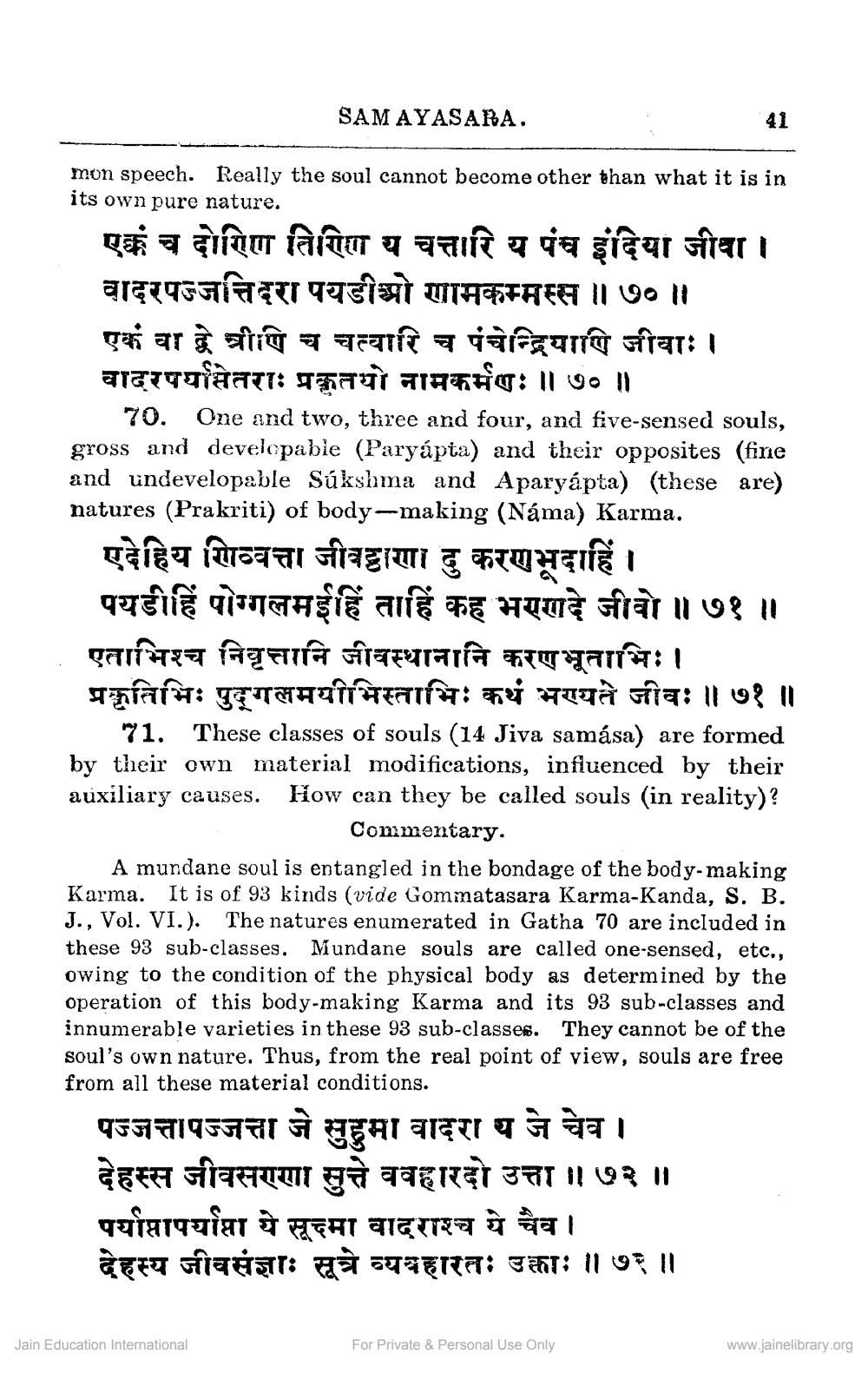________________
SAM AYASARA.
41
mun speech. Really the soul cannot become other than what it is in its own pure nature.
एकं च दोगिण तिणिण य चत्तारि य पंच इंदिया जीवा । वादरपज्जत्तिदरा पयडीओ णामकम्मस्स ॥ ७० ॥ एक वा द्वे त्रीणि च चत्वारि च पंचेन्द्रियाणि जीवाः । वादरपर्यातराः प्रकृतयो नामकर्मणः ॥ ७० ॥
70. One and two, three and four, and five-sensed souls, gross and developable (Paryápia) and their opposites (fine and undevelopable Súkshma and Aparyápta) (these are) natures (Prakriti) of body-making (Nama) Karma.
एदेहिय णिवत्ता जीवट्ठाणा दु करणभदाहिं। पयडीहिं पोग्गलमईहिं ताहिं कह भएणदे जीवो ॥७१ ॥ एताभिश्च निवृत्तानि जीवस्थानानि करणभूताभिः । प्रकृतिभिः पुद्गलमयीभिस्ताभिः कथं भण्यते जीवः ॥७१ ॥
71. These classes of souls (14 Jiva samása) are formed by their own material modifications, influenced by their auxiliary causes. How can they be called souls (in reality)?
Commentary. A mundane soul is entangled in the bondage of the body-making Karma. It is of 93 kinds (vide Gommatasara Karma-Kanda. S. B. J., Vol. VI.). The natures enumerated in Gatha 70 are included in these 93 sub-classes. Mundane souls are called one-sensed, etc., owing to the condition of the physical body as determined by the operation of this body-making Karma and its 93 sub-classes and innumerable varieties in these 93 sub-classes. They cannot be of the soul's own nature. Thus, from the real point of view, souls are free from all these material conditions.
पज्जत्तापज्जत्ता जे सुहमा वादरा य जे चेव । देहस्स जीवसण्णा सुत्ते ववहारदो उत्ता ॥७२॥ पर्याप्तापर्याप्ता ये सूक्ष्मा वादराश्च ये चैव । देहस्य जीवसंज्ञाः सूत्रे व्यवहारतः उक्ताः ॥ ७९ ॥
Jain Education International
For Private & Personal Use Only
www.jainelibrary.org




